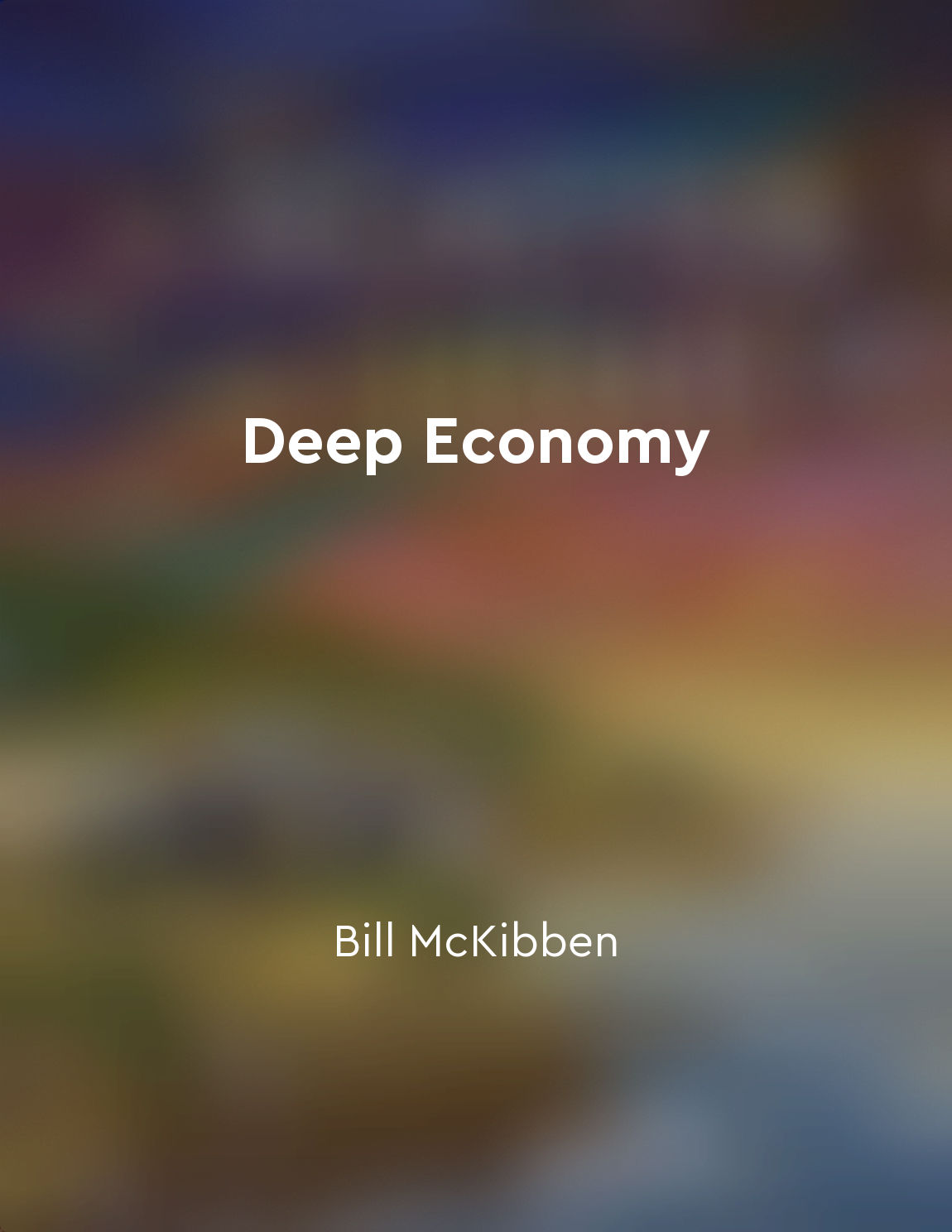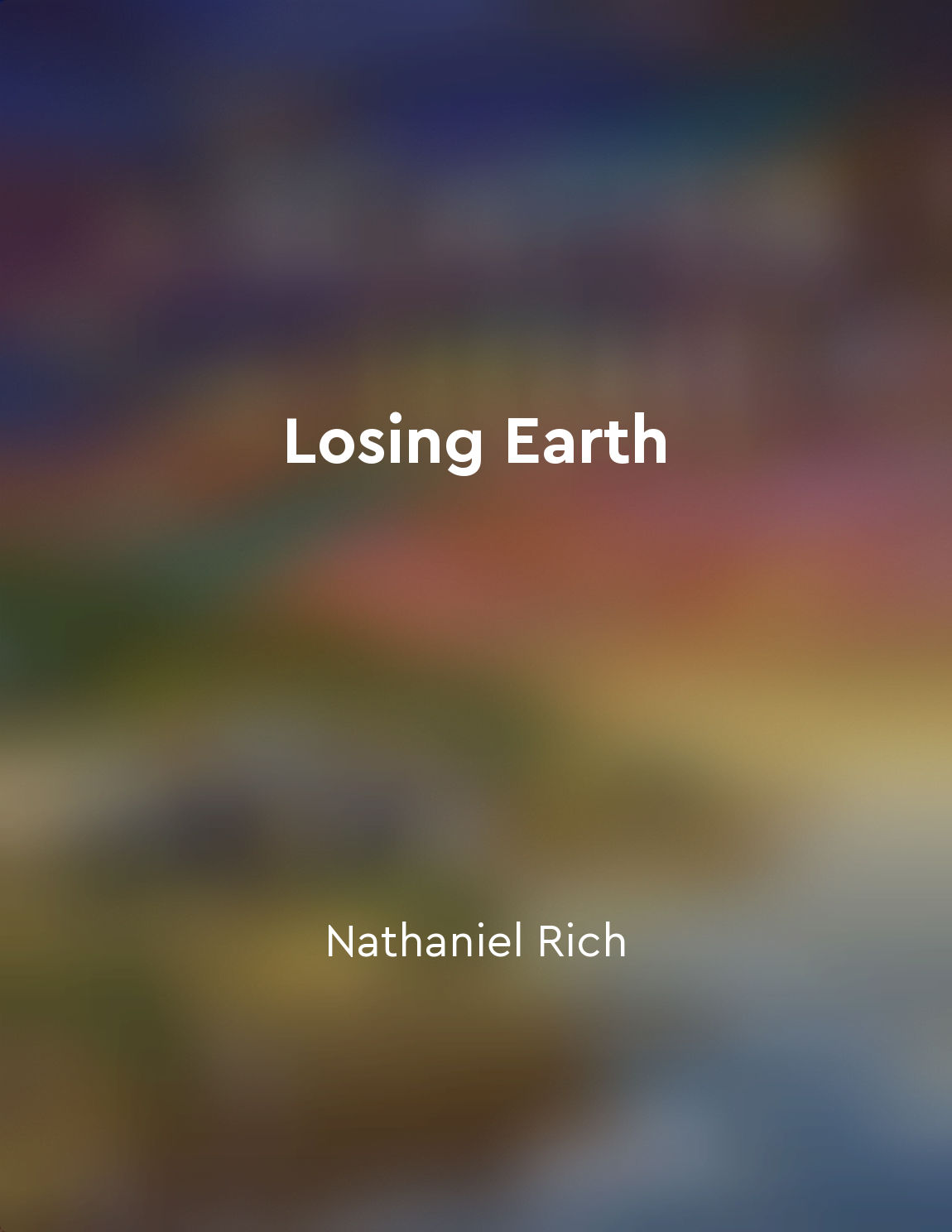Climate change impacts disproportionately affect vulnerable communities from "summary" of Losing Earth by Nathaniel Rich
The devastation caused by climate change is not distributed equally. The ones who suffer the most are those who are least capable of defending themselves - the vulnerable communities. These communities, often already grappling with poverty and lack of resources, bear the brunt of the impacts of a changing climate. Extreme weather events, such as hurricanes and heatwaves, hit these communities the hardest. They lack the resources to adequately prepare for or recover from such disasters. Their homes, often located in low-lying areas or near pollution sources, are more susceptible to damage. The health of community members, already compromised by existing environmental hazards, deteriorates further in the face of climate change impacts. Economic disparities deepen as vulnerable communities face disruptions to their livelihoods. Agriculture is particularly hard hit, as changing weather patterns make it difficult to grow crops or raise livestock. This further exacerbates food insecurity and malnutrition in these communities. Jobs are lost, businesses close, and the cycle of poverty tightens its grip. In addition to these tangible impacts, vulnerable communities also face social and psychological challenges. Displacement due to climate-related disasters leads to loss of homes and community ties. The trauma of such events lingers long after the physical damage has been repaired, if it ever is. Mental health issues, already prevalent in these communities, are exacerbated by the stress of climate change impacts. As the world continues to warm, the gap between the haves and the have-nots widens. Vulnerable communities, already marginalized and disenfranchised, find themselves pushed further to the margins. The injustice of this situation is undeniable - those who have contributed least to climate change are bearing the greatest burden. It is imperative that we recognize this reality and take action to address the disproportionate impact of climate change on vulnerable communities.Similar Posts

Foster international cooperation on climate issues
To address the urgent challenge of climate change, countries must work together. This means setting aside differences and findi...
Climate change is not a problem that can be solved by individual actions alone
The idea that individual actions alone can solve the problem of climate change is a seductive one. It suggests that if we all j...
Innovation plays a key role in addressing climate challenges
In the battle against climate change, innovation emerges as a powerful ally. It is clear that traditional methods alone may not...
Harsh conditions shape character
The unforgiving wilderness of Alaska serves as a crucible for individuals, testing their mettle and fortitude in ways that the ...

Local economies can provide resilience
In an increasingly interconnected and globalized world, the idea of local economies providing resilience may seem counterintuit...
Reforestation restores ecosystems
Reforestation is a powerful tool for reviving damaged ecosystems. When forests are replanted, they can help restore the balance...

